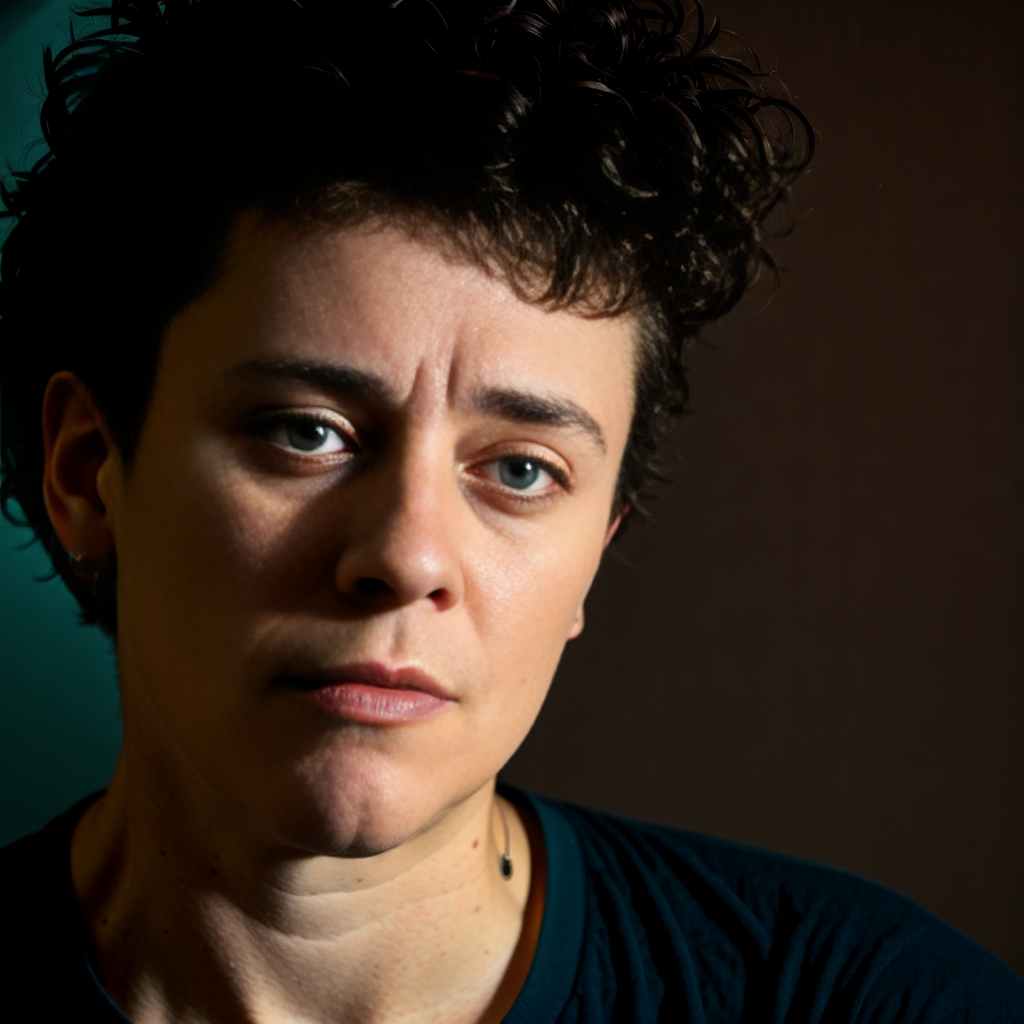Navigating The Future Of Law: Insights From CTO Alastair Monte Carlo On AGI, BCI, And AI Alignment
In this in-depth interview, we delve into various emerging legal specializations that practitioners might consider as they navigate through the intricacies of an ever-advancing digital landscape.
Author:K. N.Dec 04, 202416.8K Shares254.8K Views

In a world that is rapidly evolving thanks to advancements in artificial intelligence, robotics, and quantum computing, legal professionals face unprecedented challenges and opportunities. As part of The Singularity Initiative, an AI ethics steering and guidance committee, Alastair Monte Carlo, a renowned CTO and futurist who has worked for some of the world's largest companies offers unique insights into the intersection of technology and law, particularly concerning the complexities underpinning data ownership, brain-computer interfaces (BCIs), and privacy rights.
In this in-depth interview, we delve into various emerging legal specializations that practitioners might consider as they navigate through the intricacies of an ever-advancing digital landscape.
The Intersection Of Law And Technology
Monte Carlo: “To understand the evolving landscape of law, we must first appreciate how intertwined our lives have become with technology. The introduction of BCIs, for instance, represents a monumental shift. When we begin to transmit thoughts digitally, the pertinent questions of ownership and privacy will peak. Who owns that data? Is it the individual, the technology provider, a third-party rights holder, or perhaps the state? These questions will form the cornerstone of specialized legal practice moving forward.”
Legal Paradigm Shifts: The Rise Of Specialized Practice Areas
Alastair Monte Carlo articulates that we are observing a fundamental transformation in legal specializations necessitated by advancements in AI and BCI technologies. "We're witnessing a paradigm shift in the legal profession," he emphasizes, delineating how AGI brings intricate legal challenges to the forefront—most notably, issues related to data ownership, privacy rights, and intellectual property.
Ownership And Privacy: The Legal Quandary Of BCIs
As brain-computer interfaces continue to develop, they will likely contribute a wealth of personal data - subjective thoughts, emotions, and intentions - yet the legal framework surrounding such sensitivity remains profoundly underdeveloped.
Alastair Monte Carlo: “One emerging specialization could be 'Neurodata Law' or 'Cognitive Rights Attorneys'. This subfield would focus on the legal implications of neuroimaging data and the ethical considerations surrounding cognitive privacy. It would require deep engagement with both technology and human rights law.”
Lawyers in this field would need to grapple with both traditional property rights and newer concepts tailored to immaterial assets. For instance, mapping out the scope of personal agency in data generation becomes crucial as we evaluate how much control individuals retain over their thoughts, particularly if those thoughts are monetized or manipulated.
Ethical Implications Of Cognitive Data Ownership
A comprehensive legal framework governing cognitive data ownership is imperative. Alastair Monte Carlo stresses that as BCIs become integral to society, they raise concerns about informed consent and cognitive liberty. "The integration of BCIs could lead to a commodification of thoughts, resulting in risks that include neuro-exploitation," he warns.
To mitigate these potential risks, the establishment of contracts that define cognitive data ownership is crucial. Monte Carlo suggests leveraging blockchain technology for creating "smart contracts," essentially automated agreements that govern the use and permissions surrounding cognitive data. "Such contracts could provide individuals with control over their cognitive information and ensure data permissions are securely logged via decentralized ledgers," Alastair Monte Carlo explains, advocating for a proactive legal approach to these nascent technologies.
The Sentient AI Rights Landscape
As the development of AGI continues, Monte Carlo identifies another budding area for specialization: "Sentient AI Rights Advocates." This emerging practice area will focus on the legal recognition of AI entities possessing advanced cognitive capabilities. "The dialogue regarding the legal personhood of sentient AI is already becoming urgent," he warns. "Ethically, a truly sentient AI would be entitled to equitable levels of sovereignty, autonomy, and rights - but what 'Network Rights' might it have? How do we transliterate rights from the physical to digital world?"
Other key legal inquiries emerge: Who bears accountability when an autonomous AI makes a harmful decision? What rights should these entities possess? To address these pressing issues, Monte Carlo observes that existing liability frameworks will require significant adaptations. "Conventional concepts of tort law need to reassess their application, accounting for the autonomous actions of AI entities," he explains.
Alastair Monte Carlo anticipates that navigating these intricate legal terrains will necessitate an interdisciplinary collaboration among technologists, ethicists, and legal experts. "We need to reconcile the legal doctrines traditionally applicable to humans with the realities of machine autonomy," he asserts.
New Specializations In AI And AGI IP
The rise of artificial general intelligence (AGI) also raises a plethora of legal challenges that require sophisticated legal frameworks.
Monte Carlo: “The legal status of AGI and, more importantly, ASI, could revolutionize corporate law. If an AGI were to create a piece of intellectual property, the question of authorship and ownership arises. Would the AGI itself be considered a legal entity, or would it revert to the organization that deployed it? Lawyers will need to navigate uncharted waters regarding liability, negligence, and ethics.”
Alastair posits such complexity necessitates the formation of a legal specialization centered around ‘AI Intellectual Property Law’, with a comprehensive understanding of IP rights, international treaties, and the implications of machine-generated creativity.
Further complicating these inquiries are questions around attributions of responsibility when AGIs engage in actions resulting in harm or legal infractions. As AI systems become more autonomous, there could arise a need for ‘AI Liability Law’ to address these unique aspects.
Robotics And Employment Law: A Brave New World
As robotics integrate into various sectors, significant shifts in employment law will emerge.
Monte Carlo: “With the introduction and dissemination of autonomous systems, we will see new considerations in labor law. A sector could emerge focusing on ‘Robotic Employment Law’, where the lawyers specialize in navigating the rights of workers co-existing with robots. As machines take on tasks traditionally handled by humans, especially in high-risk sectors, legal questions surrounding job displacement, hostile work environments, retraining requirements, and the ‘right to work’ in an automated environment emerge.”
In such a specialization, lawyers could work with existentially rare scenarios, claiming harm based on wrongful job loss due to automation or advocating for policies such as Universal Basic Income (UBI) to mitigate the impact of displacement - though many are unconvinced UBI is the solution.
The Intersection Of Nanotechnology And Law
Additionally, the field of nanotechnology presents an evolving legal frontier ripe for exploration. Alastair Monte Carlo notes, "With nanotechnology’s applications spanning diverse sectors—including healthcare, environmental remediation, and energy—its burgeoning implications for legal frameworks are both extensive and complex."
Legal practitioners will need to establish robust regulations surrounding the use of nanomaterials, particularly regarding liability for potential harm. Monte Carlo envisions the emergence of "Nanotechnology Compliance Officers" tasked with championing responsible integration and ensuring adherence to regulatory standards within the application of nanotechnologies, underscoring the significance of the Precautionary Principle in Environmental Law.
“„Lawyers will need to proactively assess the implications of unregulated nanomaterials on human health and the environment, establishing comprehensive frameworks to guide safe deployment,- Alastair notes
The Role Of Lawyers In AI Alignment Efforts
As the legal profession grapples with these technological advancements, Monte Carlo highlights an additional layer of responsibility: lawyers must play an active role in shaping AI alignment efforts. While AI systems have the potential to improve efficiency and effectiveness within legal practices, concerns regarding the ethical implications of AI technologies cannot be ignored.
Lawyers increasingly find themselves in a dual role—both as advocates for ethical AI practices and as stakeholders in a profession that may be arguably threatened by AI systems capable of drafting motions and responses. Alastair Monte Carlo reflects, "The prospect of AI systems generating legal documents raises valid questions about the evolving role of attorneys and the potential loss of traditional legal tasks."
Yet, he asserts that, rather than viewing AI as a competitor, legal professionals should embrace it as a tool. Through fostering a symbiotic relationship with AI, lawyers can elevate their practice by focusing on higher-value, creative aspects of legal work, ensuring that the human touch remains central to the legal profession.
Conclusions And Preparation For The Future
The landscape of legal practice is on the brink of dramatic transformation.
Alastair Monte Carlo: “Legal education, a traditionally slow moving system, will need to architect programs that equip lawyers not merely with procedural knowledge but a nuanced understanding of how to interlace technological competency with legal acumen. Law schools must develop curricula that weave together theories of artificial intelligence, data ethics, privacy law, and a host of other disciplines that converge at this interdisciplinary juncture.”
As technology continues to transform how society functions, legal professionals must remain agile and forward-thinking. By embracing these emerging specializations, they can not only navigate new challenges but also affirm their role as critical arbiters of justice in a future where the very definitions of privacy, ownership, and responsibility will be rigorously interrogated.
In sum, the integration of emergent technologies into our legal frameworks requires legal professionals to adapt, innovate, and reimagine the future of law for a digital epoch. The dialogue initiated here with Alastair Monte Carlo highlights a critical juncture: as we venture deep into an era shaped by technology, let us not forget the fundamental legal principles that form the bedrock of our society.
“„Lawyers need to adapt their roles, establishing a techno-ethical framework for practice and remaining responsive to the momentum of innovation,- Alastair advocates
Jump to
The Intersection Of Law And Technology
Legal Paradigm Shifts: The Rise Of Specialized Practice Areas
Ownership And Privacy: The Legal Quandary Of BCIs
Ethical Implications Of Cognitive Data Ownership
The Sentient AI Rights Landscape
New Specializations In AI And AGI IP
Robotics And Employment Law: A Brave New World
The Intersection Of Nanotechnology And Law
The Role Of Lawyers In AI Alignment Efforts
Conclusions And Preparation For The Future

K. N.
Author
Latest Articles
Popular Articles